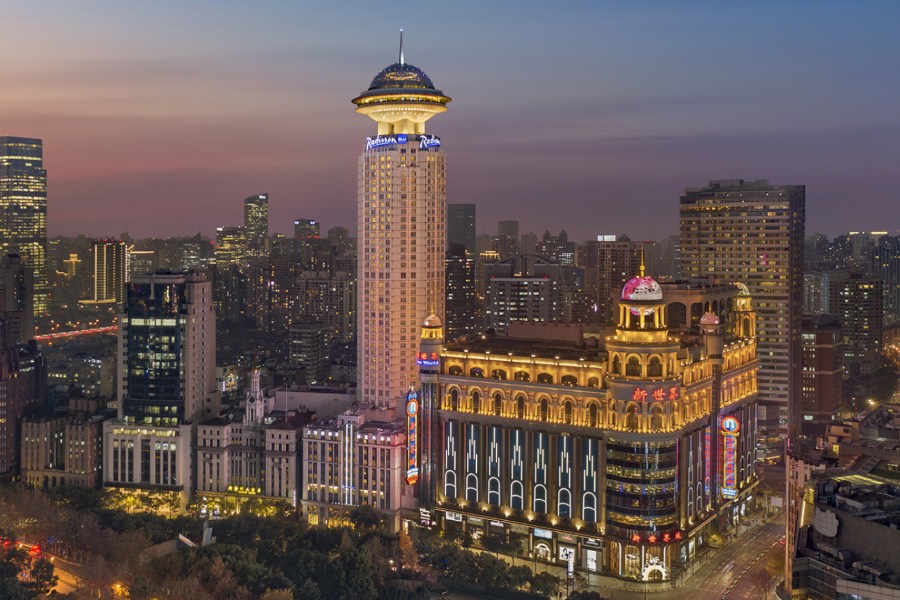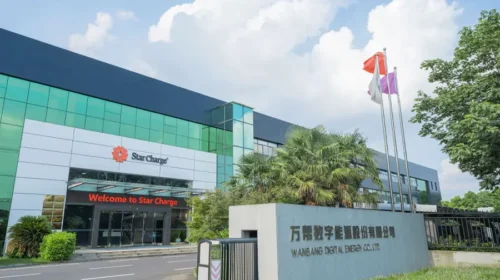Checking out or checking in? Jin Jiang can’t decide

Three years after privatizing its Hong Kong-listed shares, storied hotelier Jin Jiang has rolled out plans to re-list on the city’s stock exchange
Key Takeaways:
- Jin Jiang has applied to list in Hong Kong, just three years after withdrawing from the market
- The company’s profit tumbled over 80% in the first quarter as Chinese travelers reined in their spending
By Lau Chi Hang
The opening chapter of “Romance of the Three Kingdoms,” one of China’s four great classical novels, says the world operates in cycles of long periods of division, followed by reunification, before more division.
That same rule applies in the capital market these days to Jin Jiang Capital Co. Ltd. The company, one of China’s three largest hoteliers, checked out of the Hong Kong stock market three years ago with its privatization, believing its shares were undervalued. But now its 45%-owned company, the similarly named Shanghai Jin Jiang International Hotels Co. Ltd. (600754.SH), is saying it plans to make a second listing in Hong Kong and has hired KPMG as its auditor, according to a filing with the Shanghai Stock Exchange earlier this month.
Jin Jiang is one of China’s most storied hotel brands, with a portfolio that includes some of Shanghai’s most famous properties, such as its namesake art deco-style Jin Jiang Hotel, the Peace Hotel, formerly known as the Cathay Hotel, and the newer Park Hotel. When U.S. President Richard Nixon visited China in 1972, his U.S. delegation stayed at the Jin Jiang Hotel.
Jin Jiang International listed in Shanghai in 1994, just years after China launched its first stock exchanges. Its controlling shareholder, Jin Jiang Capital, went public in Hong Kong in 2006 and delisted in 2022. The new Hong Kong listing attempt for Jin Jiang International, just three years after Jin Jiang Capital’s exit, has left investors wondering why the company is coming back for a second stay, and whether the new listing may be worth considering.
To figure out what’s happening, we’ll rewind to 2021 and examine why Jin Jiang Capital delisted in the first place. Disclosures from that time show its privatization was driven by two main factors. Back then, the company said its Hong Kong shares were consistently valued lower than its peers, which was compounded by low trading volumes. Additionally, the company believed that privatizing could help to cut costs, boosting its operating efficiency.
Low trading volumes
So, if the company withdrew from Hong Kong due to low valuations and trading volumes, why does it feel the same thing won’t happen again?
The biggest Hong Kong-listed hotel stock is H World Group (1179.HK; HTHT.US), whose daily trading volume averages 1 million to 2 million shares typically worth HK$50 million ($6.37 million) or less. Shangri-La Group’s (0069.HK) daily volume averages several hundred thousand shares valued at several million Hong Kong dollars. Hongkong and Shanghai Hotels (0045.HK) is even worse, averaging less than 100,000 shares traded daily worth just several hundred thousand Hong Kong dollars, or tens of thousands of U.S. dollars.
The bottom line is that Hong Kong investors aren’t easily excited by hotel stocks. In the year before Jin Jiang Capital’s delisting, its average daily trading volume was around 1.8 million shares. Does the company have some major plans to bring more excitement to its stock this time around?
The timing of the relisting plan doesn’t seem particularly good, either. Hong Kong stocks saw some terrific runs during Jin Jiang’s first listing between 2006 and 2022, but the company never really took off during the hot periods.
Investors are far less confident these days than those earlier go-go years, worried about uncertainties created by geopolitical tensions and the ongoing China-U.S. trade war. While market sentiment has improved somewhat since late last year, daily trading volume in Hong Kong is still relatively muted, usually less than HK$200 billion. The overall environment in Hong Kong seems less friendly overall than during Jin Jiang’s first Hong Kong listing.
Changing business strategies
Low valuation and trading volumes aside, Jin Jiang also listed cost-cutting as a major consideration behind its 2022 privatization. And yet now such consideration seems less important, since the company will once again incur all the costs associated with a Hong Kong listing. That raises of the question of what may have happened that has suddenly made a Hong Kong listing appealing again.
Perhaps the company really does have a new playbook now that didn’t exist three years ago. Its disclosure says it has been strengthening ties with overseas capital markets to facilitate a future globalization strategy – a common theme recently among Chinese companies in search of growth as their home market slows.
Jin Jiang has been expanding overseas for more than a decade, with high-profile moves including its purchase of U.S.-based Interstate Hotels in 2009, which it later sold, and its acquisition of France’s Louvre Hotels Group for a hefty 1.2 billion euros ($1.4 billion) in 2014. Those deals all happened during Jin Jiang Capital’s first Hong Kong listing and show that global expansion isn’t really anything new for the company.
Money-losing overseas business
Jin Jiang hasn’t exactly been raking in the profits from its overseas business, either. Losses for that part of its operations have been piling up, totaling more than 200 million euros between 2020 and 2023. While the red ink has eased, the company’s overseas business still lost 56.89 million euros last year. Louvre Hotels has been a big part of the problem, continuing to lose money a decade after the acquisition. With such a poor track record, how can Jin Jiang hope to convince Hong Kong investors of the big potential for more overseas expansion?
Things aren’t much better at home. After benefiting from a wave of “revenge travel” in 2023, Jin Jiang and its peers have started to struggle as China’s tourism recovery peters out. As that happens, the company’s revenue fell 4% last year to 14.06 billion yuan from 2023 and its profit dropped 9% to 910 million yuan. The declines accelerated in this year’s first quarter, with its revenue down 8.3% to 2.9 billion yuan and its profit tumbling 81% to 36.01 million yuan. Such plunging profits will hardly reel in investors.
The comeback listing may be Jin Jiang’s way of striking while the iron is hot, since Hong Kong is now experiencing one of its best IPO markets in years. That means the company’s shares might get a strong reception over the short haul from a rising tide that lifts all boats. But longer-term investors might be a harder sell and may want to observe the company for a year or two before swooping in to buy the stock on this second outing in Hong Kong.
To subscribe to Bamboo Works weekly free newsletter, click here





